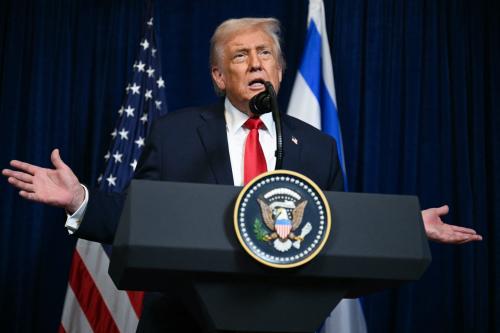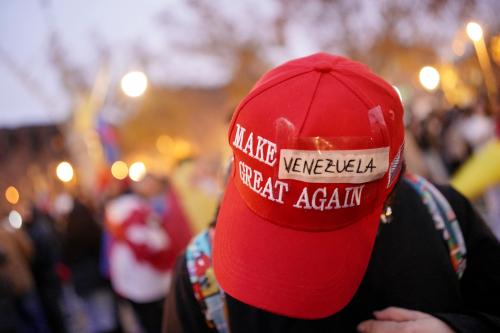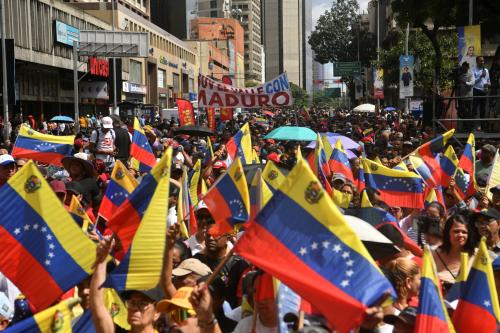In his State of the Union speech, President Obama noted U.S. opposition to Russian aggression and support for Ukraine. He pointed out that much has changed since last year—that the United States and its allies stand united, while President Putin is isolated and presiding over an economy headed for recession.
Indeed, much has changed over the past half-year. Last June, Putin seemed to be on a roll. His military had seized Crimea at apparently minimal cost. The Kremlin was funding, arming and providing leadership for a separatist movement in eastern Ukraine with the goal of destabilizing Kyiv and Petro Poroshenko’s barely begun presidency. In the West, the United States and European Union struggled to come up with a coherent approach to economic sanctions on Russia.
Today, Putin has learned that his actions have costs. The United States and Europe have moved in parallel to apply increasingly robust sanctions. Those measures, coupled with the fall in the price of oil, have made themselves felt in a big way in Russia: capital flight totaled $150 billion in 2014, the ruble has lost half its value from a year ago, officials in Moscow expect the economy to contract by almost five percent in 2015 and Russian companies are trying to figure out how they will refinance the tens of billions of dollars in debts that come due this year.
The West finds itself in a stronger position than many would have predicted last year. But a conflict continues to rage in eastern Ukraine, with new reports of regular Russian army units fighting in the Donbas, while Russia has bolstered its military presence in Crimea. And Ukraine is drawing uncomfortably close to financial collapse.
President Obama therefore needs to work with German Chancellor Merkel and other European leaders to sustain and strengthen the West’s response to the conflict. The United States, European Union and international financial institutions should prepare a package of additional financial support for Ukraine as Kyiv implements meaningful economic reforms. And the United States and other NATO members should urgently provide increased military assistance, so that Ukraine can better defend itself and deter further aggression and escalation by Russia.
If the West can help the Ukrainians close off the military option for Russia, and sanctions continue to impact the Russian economy, there is a chance that the Kremlin will consider adopting a new course and seek to negotiate a genuine political settlement. Getting to that negotiating space is the goal of sanctions and military assistance.
The Brookings Institution is committed to quality, independence, and impact.
We are supported by a diverse array of funders. In line with our values and policies, each Brookings publication represents the sole views of its author(s).



Commentary
SOTU: Supporting Ukraine, Opposing Russia
January 21, 2015